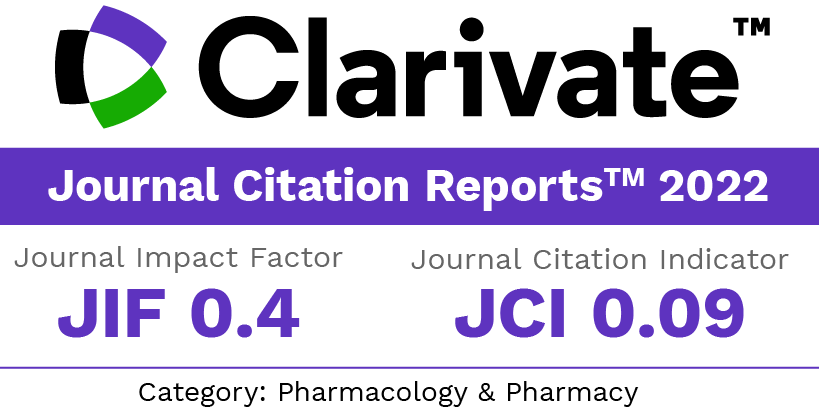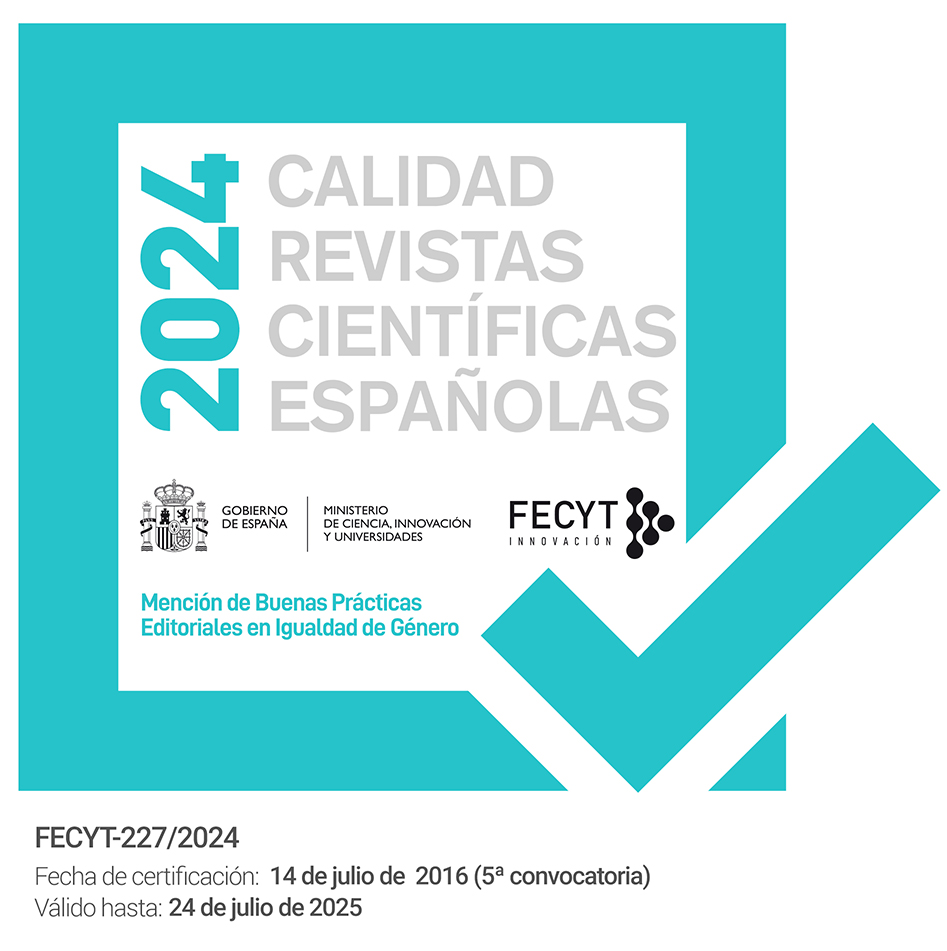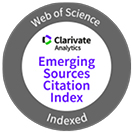Health literacy in patients with lipid-lowering prescription: a view from primary care
DOI:
https://doi.org/10.30827/ars.v63i2.23470Keywords:
Health Literacy; lipid-lowering; hypercholesterolemiaAbstract
Introduction: Health literacy is a measure of the ability of patients to read, understand and make decisions based on medical instructions. Inadequate health literacy is associated with poorer health in patients with chronic diseases. Time of dispensing could be an opportunity for the primary care pharmacist to evaluate this condition by the.
The purpose of this study was to evaluate the relationship of Health literacy and the values of total cholesterol and comorbidities in people with a prescription of lipid-lowering drugs treated in a retirement center.
Method: A prospective study was designed where the relationship of Health literacy was evaluated using Short Assessment of Health Literacy for Spanish-speaking Adults and the value of cholesterol, medications, risk factors and comorbidities. All these variables were analyzed in an integrated manner in a multivariate analysis.
Results: 178 patients participated, 63% women. The mean SAHLSA score was 43.4 ± 5.5. Inadequate HL was found in 24%. patients.
The mean cholesterol value in patients with inadequate Health literacy was 235.17mg / dl vs 193.53mg / dl among those with adequate Health literacy.
A multivariate analysis was performed that showed an association between inadequate Health literacy, the level of education and the patient’s knowledge of normal values of total cholesterol. The number of hospitalizations and the occurrence of coronary events were significantly higher in patients with insufficient Health literacy.
Conclusions: A direct relationship was found between the degree of Health literacy and total cholesterol values in patients undergoing treatment for hypercholesterolemia.
Downloads
References
Bostock S, Steptoe A. Association between low functional health literacy and mortality in older adults: longitudinal cohort study. BMJ. 2012 Mar 15;344:e1602. doi: 10.1136/bmj.e1602
Ariza Bolivar A, Lanteri M.E, Cícero CY, Pérez A, Puchulu FM, Mejía R. Alfabetización en salud y control de la diabetes en pacientes de un hospital universitario de Argentina. Medicina (Buenos Aires) 2017; 77: 167-172.
Paasche-Orlow MK, Parker RM, Gazmararian JA, Nielsen-Bohlman LT, Rudd RR. The prevalence of limited health literacy. J Gen Intern Med. 2005; 20(2):175-84. doi: 10.1111/j.1525-1497.2005.40245.x.
Lee SY, Bender DE, Ruiz RE, Cho YI. Development of an easy-to-use Spanish Health Literacy test. Health Serv Res. 2006 41(4 Pt 1):1392-412. doi: 10.1111/j.1475-6773.2006.00532.x.
Falcón M, Basagoiti I. El paciente y la Alfabetización en Salud. En: Alfabetización en salud: De la información a la acción. Basagoiti I. (Ed.). Itaca, Valencia, España. 2012, pp. 65-96.
American Heart Association. ¿Qué significan mis niveles de colesterol? American Heart Association, 2012. En: ttps://www.heart.org/idc/groups/heart-public/@wcm/@hcm/documents/downloadable/ucm_316249.pdf
Galante M, Konfino J, Ondarsuhu D, Goldberg L, O’Donnell V, Begue C, Gaudio M, King A, Sciarretta V, Laspiur S, Ferrante D. Principales resultados de la 3ra Encuesta Nacional de Factores de Riesgo de enfermedades no transmisibles en Argentina. Revista Argentina de Salud Pública 2015; 6: 22-29.
Ministerio de Salud de la Nación.4° Encuesta Nacional de Factores de Riesgo, Presentación de los principales resultados. Ministerio de Salud de la Nación, Argentina, 2019. En: http://www.msal.gob.ar/images/stories/bes/graficos/0000001444cnt-2019-04_4ta-encuesta-nacional-factores-riesgo.pdf
Di Rienzo JA, Casanoves F, Balzarini MG, González L., Tablada M., Robledo C.W. InfoStat versión 2019. Grupo InfoStat, FCA, Universidad Nacional de Córdoba, Argentina. URL http://www.infostat.com.ar
Gazmararian JA, Williams MV, Peel J, Baker DW. Health literacy and knowledge of chronic disease. Patient Educ Couns. 2003;51(3):267-75. doi: 10.1016/s0738-3991(02)00239-2.
Kuo DMD, Thaker S, Duncan M, Puente M, Parra S., Rider A., Horter K., Pillow M.T. Use of Short Assessment of Health Literacy for Spanish Adults (SAHLSA-50) to Determine the Health Literacy Rate of the Spanish-speaking Population in an Urban Emergency Department. J Fam Strengths. 2017; 17: 1-10.
Goldman RE, Parker DR, Eaton CB, Borkan JM, Gramling R, Cover RT, Ahern DK. Patients’ perceptions of cholesterol, cardiovascular disease risk, and risk communication strategies. Ann Fam Med. 2006;4(3):205-12. doi: 10.1370/afm.534.
Baker DW, Parker RM, Williams MV, Clark WS. Health Literacy and the Risk of Hospital Admission. J Gen Intern Med. 1998; 13: 791-798.
Baker DW, Gazmararian JA, Williams MV, Scott T, Parker RM, Green D, Ren J, Peel J. Functional Health Literacy and the Risk of Hospital Admission Among Medicare Managed Care Enrollees. Am J Public Health 2002; 92: 1278-1283
Fabbri M, Yost K, Finney Rutten LJ, Manemann SM, Boyd CM, Jensen D, Weston SA, Jiang R, Roger VL. Health Literacy and Outcomes in Patients With Heart Failure: A Prospective Community Study. Mayo Clin Proc. 2018;93(1):9-15. doi: 10.1016/j.mayocp.2017.09.018
Parker RM, Jacobson TA. The role of health literacy in narrowing the treatment gap for hypercholesterolemia. Am J Manag Care. 2000;6(12):1340-2. PMID: 11151811.
Gossey JT, Whitney SN, Crouch, MA, Jibaja-Weiss ML, Zhang H, Volk R J. Promoting knowledge of statins in patients with low health literacy using an audio booklet. Patient preference and adherence, 2011;5:397–403. doi: 10.2147/PPA.S19995
Hersh L, Salzman B, Snyderman D.Health Literacy in Primary Care Practice Am FamPhysician. 2015;92(2):118-24. PMID: 26176370.
Morris NS, MacLean CD, Chew LD, Littenberg B. The Single Item Liter- acy Screener: evaluation of a brief instrument to identify limited reading ability. BMC Fam Pract. 2006;7:21. doi: 10.1186/1471-2296-7-21.
Konfino J, Mejia R, Ajdalani MP, Pérez-Stable EJ. Alfabetización en salud en pacientes que asisten a un hospital universitario. Medicina (Buenos Aires) 2009; 9: 631-634.
Johnson J, Moser L, Garwood C.Health literacy: a primer for pharmacist.Am J Health Syst Pharm 2013;70(11):949-55. doi: 10.2146/ajhp120306.
Downloads
Published
How to Cite
Issue
Section
License
Copyright (c) 2022 Pamela Bertoldo

This work is licensed under a Creative Commons Attribution-NonCommercial-ShareAlike 4.0 International License.
The articles, which are published in this journal, are subject to the following terms in relation to the rights of patrimonial or exploitation:
- The authors will keep their copyright and guarantee to the journal the right of first publication of their work, which will be distributed with a Creative Commons BY-NC-SA 4.0 license that allows third parties to reuse the work whenever its author, quote the original source and do not make commercial use of it.
b. The authors may adopt other non-exclusive licensing agreements for the distribution of the published version of the work (e.g., deposit it in an institutional telematic file or publish it in a monographic volume) provided that the original source of its publication is indicated.
c. Authors are allowed and advised to disseminate their work through the Internet (e.g. in institutional repositories or on their website) before and during the submission process, which can produce interesting exchanges and increase citations of the published work. (See The effect of open access).























